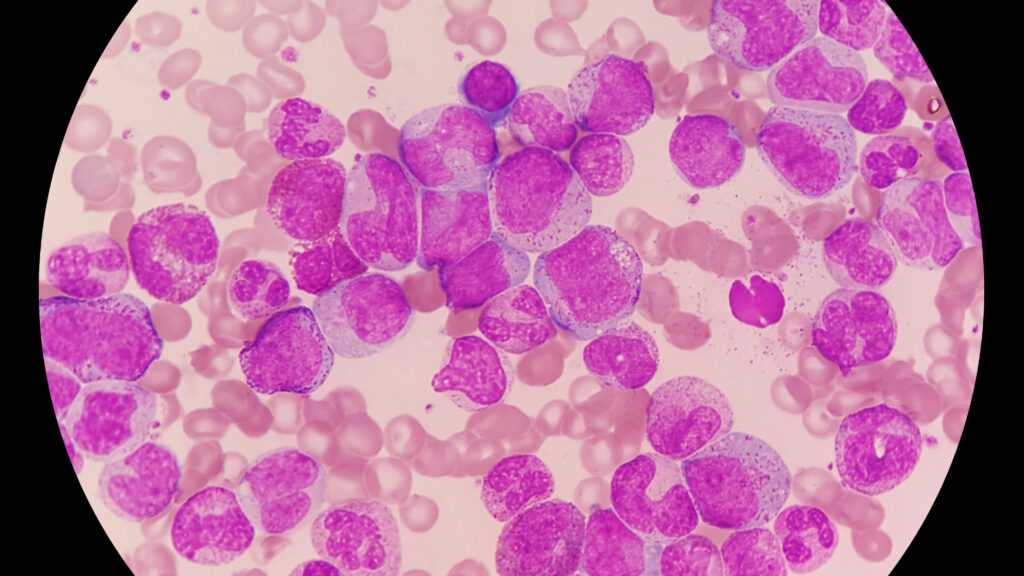Want to stay on top of the science and politics driving biotech today? Sign up to get our biotech newsletter in your inbox.
Hope you had a reflective Indigenous Peoples Day. Today, we talk about the implications of Bristol Myers Squibb acquiring Mirati Therapeutics, see a new lung cancer test from liquid biopsy player Delfi Diagnostics, and more.
advertisement
The need-to-know this morning
• Akero Therapeutics said its experimental medicine failed to show a significant benefit for patients with cirrhosis caused by NASH, the most advanced and life-threatening stage of the fatty liver disease. Adam Feuerstein has more details on the study outcome, and why Akero exeutives remains confident in the efficacy of its drug for patients with NASH cirrhosis. Investors are less sanguine: Akero shares are plunging in pre-market trading.
Delfi Diagnostics ‘beta testing’ liquid biopsy for lung cancer
Liquid biopsy player Delfi Diagnostics is launching firstLook Lung, a blood test that identifies who might benefit most from lung cancer screening. The initial rollout will chiefly focus on gathering data — it won’t be commercially available yet. Instead, select partners will administer the test, and it’ll cost consumers several hundred dollars.
“Over the coming year we’re going to experiment and learn, then we’re going to start, let’s say, scaling and look at ways we can impact metrics,” Victor Velculescu, Delfi’s CEO and founder, who is also a genetics researcher at Johns Hopkins University.
advertisement
The privately held Delfi has raised about $330 million. STAT’s Matthew Herper got an advanced look at slides about the test and found that it stirs up ongoing debates over the precise role liquid biopsy will play in cancer screening.
Alnylam’s Onpattro rejected by FDA
The FDA yesterday rejected Onpattro, a drug made by Alnylam Pharmaceuticals to treat the increasingly prevalent heart disease ATTR-CM. Although the drug did technically outperform placebo in a late-stage trial, FDA reviewers thought the meaningfulness of the improvement was questionable. Patients at the beginning of the study could walk about 360 meters in six minutes at the median. After 12 months, the patients getting Onpattro could walk an additional 14.7 meters further than those on placebo.
There’s been a wave of new treatments for ATTR-CM in recent years, leading to an increase in diagnoses. About 400,000 people around the world are thought to have the disease, which progressively leads to heart failure. Alnylam is currently developing an updated version of Onpattro that can be administered under the skin, as opposed to intravenously. Data on that drug will come out next year, after which Alnylam will try its hand again at an FDA approval.
Want a biotech buyout? Target cancer
The news that Bristol Myers Squibb purchased Mirati Therapeutics for $4.8 billion was, in some ways, a perennial biotech story: It was a company developing a small molecule cancer medicine that eventually got so promising that a big pharma wanted to buy it.
Big pharmaceutical firms have their own effort to churn targeted cancer pills, generally of a class known as kinase inhibitors. But such medicines, all of them basically heirs of the Novartis leukemia drug Gleevec, are also a strong fit for startups, which can develop them and then be sold for billions. Recent examples include Loxo Oncology, Array BioPharma, Turning Point Therapeutics, and, well, Mirati.
And such firms continue to generate excitement. Nuvalent, which is developing another targeted lung cancer drug, has seen its shares triple over the past year. And new ones keep popping up. Scorpion Therapeutics, which was co-founded by Loxo co-founder Keith Flaherty, announced this morning that it had entered its second drug into clinical trials just three years after it was founded.
GSK’s $3 billion deal for shingles vaccines in China
GSK just signed a $3 billion deal with Shanghai-based Zhifei to develop the blockbuster shingles vaccine Shingrix. Zhifei, China’s largest vaccine maker, will also have the option to distribute GSK’s vaccine for RSV if it’s approved by regulators there. The market in China for a shingles vaccine is huge, GSK execs said: By 2030, there will be about 570 million adults over the age of 50 there. But as of this past June, only 1.2% had been vaccinated against shingles.
This deal is the first of its kind in China for GSK, the Financial Times writes. It will expand GSK’s reach from 9,000 vaccination sites in the country to about 30,000. Zhifei already partners with Merck to sell billions of dollars of vaccines in China.
More reads
• Chasing Boehringer, Anaptys hits goal in pivotal rare skin disease trial, plans out-licensing deal, FierceBiotech
• Weight-loss drugs fuel boom for firms that fill syringes, Reuters
• Flush with Wegovy cash, Novo Nordisk’s owner widens investment strategy beyond biotech, FierceBiotech

